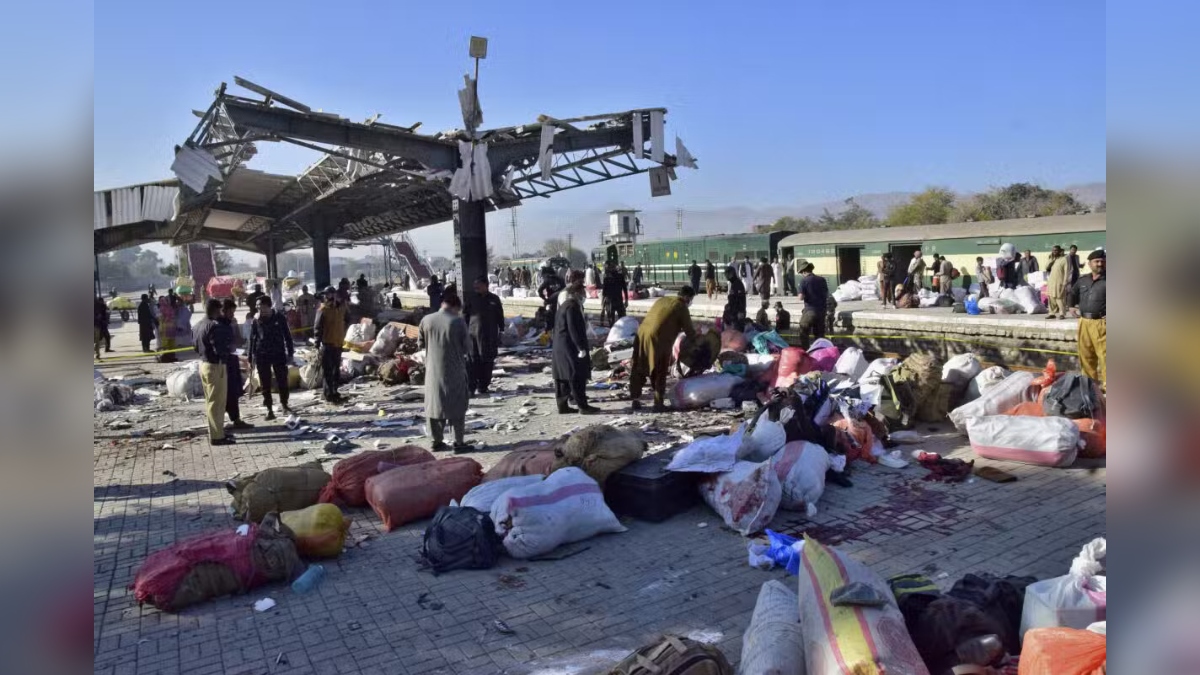In a devastating incident, a suicide bomber struck Quetta’s train station in southwestern Pakistan on Saturday, leaving at least 26 people dead, including soldiers and railway staff, and injuring around 62 others, according to officials. The attack occurred as nearly 100 passengers were gathered, awaiting a train bound for Rawalpindi.
Hamza Shafqaat, a senior government official, highlighted the difficulty of preventing such assaults. “It is usually very difficult to stop such suicide attacks,” Shafqaat said in an AP report. Shahid Nawaz, the security head at the station, stated that there was no security lapse, explaining that the attacker had blended in with passengers before detonating the explosive.
Television visuals revealed the chaotic aftermath: a shattered platform roof, destroyed tea stalls, and luggage scattered across the scene. Many of the injured were transported to both a state-run and a military hospital, where some succumbed to their injuries, increasing the death toll. Among the deceased were over a dozen soldiers and six railway employees, officials noted.
The Balochistan Liberation Army (BLA), a separatist group with a long history of insurgency against the Pakistani government, claimed responsibility for the bombing, stating the target was the security personnel present. The BLA, known for its violent campaigns advocating for Balochistan’s independence, frequently targets security forces and Chinese nationals working on Belt and Road Initiative projects in Pakistan.
Superintendent Muhammad Baloch emphasized the frequent targeting of “soft spots” by separatist groups. “When their people are arrested, they also attack in retaliation. We all have to fight this war. We are resilient. Our teams are here and trying to save as many lives as we can,” he said.
Prime Minister Shehbaz Sharif condemned the attack, warning that those responsible “will pay a very heavy price for it.” He reinforced that security forces remain committed to eradicating terrorism in the region.
The incident comes shortly after a separate explosion near a police convoy protecting polio workers, which killed nine people, including five children. The BLA has been active in recent months, launching attacks that have claimed dozens of lives across the province.
Balochistan, rich in resources but sparsely populated, is home to an ethnic Baloch minority that has long accused the central government of marginalization and resource exploitation. Apart from separatist insurgents, the province also contends with Islamic militant activities.
Amid these ongoing tensions, Pakistan faces rising pressure from international partners, particularly China, to bolster security measures. Last month, a BLA-claimed attack near Karachi airport targeted Chinese nationals, leading Beijing to urge stronger safety protocols for its citizens in Pakistan.






